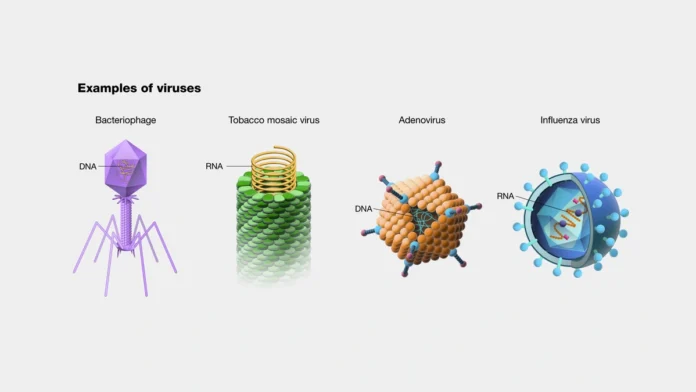We see the headlines every day: new virus variant detected, cases surging, vaccine updates. But, let’s be honest, do you really understand what’s going on? It’s easy to get lost in the noise, the fear-mongering, and the endless stream of information. That’s why we’re not just going to report the facts. We’re going to dive deep and explain why all this matters. What are the hidden implications? What’s the real story behind the spread of these microscopic invaders?
The Invisible Enemy | Understanding Viral Mechanisms

So, what exactly is a virus? It’s more than just a tiny germ that makes you sick. It’s a complex biological entity – a package of genetic material (DNA or RNA) wrapped in a protein coat. They aren’t even really “alive” in the traditional sense. They can’t reproduce on their own. They need a host cell – your cells – to hijack and replicate. Here’s the thing: understanding this basic mechanism is crucial. Think of it like understanding how a computer virus works. You need to know how it infects your system to protect yourself. Similarly, knowing how viruses operate in your body gives you the power to make informed decisions about your health.
A common misconception I see is that all viruses are inherently deadly. While some, like Ebola, are extremely dangerous, others cause mild illnesses like the common cold. The severity of a viral infection depends on many factors, including the type of virus, the dose of the virus, and the individual’s immune system. It’s all about the interplay between the invader and your body’s defenses. And that’s where things get fascinating!
The Evolution of Virulence | Why Do Some Viruses Become More Dangerous?
What fascinates me is the constantly shifting landscape of viral evolution. Viruses are masters of adaptation. They mutate, recombine, and evolve at an astonishing rate. That’s why we see new variants emerging all the time. But why do some viruses become more virulent (more dangerous)? It’s often a matter of survival. A virus that kills its host too quickly will also kill itself. The most successful viruses are those that can replicate efficiently without causing severe illness. It’s a delicate balancing act, and the factors driving this evolution are complex and not fully understood.
Now, you might be wondering about viral mutations. These aren’t always a bad thing. Sometimes a virus mutates in a way that makes it less dangerous. Think of it like this: a typo in the computer code of a malicious program might render it harmless. However, other mutations can make a virus more infectious, more resistant to treatment, or more likely to cause severe illness. This is why continuous monitoring and research are so crucial. We need to stay one step ahead of these ever-evolving threats.
Let’s not forget about the human element in all of this. Our behavior – how we interact with each other, our hygiene practices, even our travel patterns – plays a huge role in the spread and evolution of viruses. Think of it as creating the perfect breeding ground for them. The more opportunities a virus has to spread and replicate, the more chances it has to mutate and evolve. It’s a complex interplay of biology and behavior.
Beyond the Headlines | Long-Term Impacts of Viral Infections
It is easy to focus on the immediate symptoms of a viral infection: fever, cough, fatigue. But what about the long-term effects? What happens after the virus is gone? We’re learning more and more about the potential for long-term complications, sometimes referred to as “long virus” or post-viral syndromes. These can include fatigue, cognitive dysfunction, and even organ damage. I initially thought this was straightforward, but then I realized the depth and breadth of research are still in early stages, as we are still learning.
According to the Centers for Disease Control and Prevention (CDC) , understanding these long-term impacts is crucial for developing effective treatment strategies and providing appropriate care for those who have been infected. It’s not just about surviving the initial infection; it’s about recovering fully and preventing long-term health problems. This is where research into antiviral drugs and vaccines becomes so important. And so does our understanding of our own immune system.
Strengthening Your Defenses | Boosting Your Immune System
Speaking of the immune system, let’s talk about how to strengthen your defenses against viral infections. A strong immune system isn’t a magical shield, but it can significantly reduce your risk of getting sick or experiencing severe symptoms. And, no, there’s no miracle cure in a bottle.
Here’s the thing: a healthy lifestyle is the foundation of a strong immune system. That means eating a balanced diet rich in fruits and vegetables, getting enough sleep, exercising regularly, and managing stress. These simple habits can make a big difference. In addition, vaccines are a powerful tool for preventing viral infections. They work by exposing your immune system to a weakened or inactive version of the virus, allowing it to develop antibodies that will protect you from future infections.
The role of public health measures , such as mask-wearing and social distancing, is also crucial. These measures help to slow the spread of viruses, giving our immune systems a better chance to fight them off and preventing healthcare systems from being overwhelmed.
The Future of Viral Research | What’s on the Horizon?
The fight against viruses is an ongoing battle. Scientists are constantly working to develop new and better ways to prevent and treat viral infections. From cutting-edge antiviral drugs to revolutionary vaccine technologies, the future of viral research is full of promise. One area of particular interest is the development of broad-spectrum antiviral drugs that can target a wide range of viruses. This would be a game-changer, allowing us to respond quickly to emerging viral threats. Another exciting area is the use of personalized medicine to tailor treatments to individual patients based on their genetic makeup and immune response.
But the most crucial element is continued investment in research and development. As per the guidelines mentioned in the information bulletin, we need to support the scientists and researchers who are working tirelessly to protect us from these invisible enemies. We need to foster collaboration between researchers, healthcare providers, and policymakers. And we need to educate the public about the importance of viral prevention and control. Because, ultimately, the fight against viruses is a shared responsibility.
FAQ | Your Burning Questions About Viruses, Answered
Frequently Asked Questions
What are the most common viral infections?
Common viral infections include the common cold, flu, chickenpox, measles, and herpes.
How can I prevent getting a viral infection?
Practice good hygiene, get vaccinated, avoid close contact with sick people, and maintain a healthy lifestyle.
Are antibiotics effective against viruses?
No, antibiotics only work against bacteria. They are not effective against viruses.
What are some common treatments for viral infections?
Treatment for viral infections typically involves rest, fluids, and over-the-counter medications to relieve symptoms. Antiviral drugs may be prescribed in some cases.
What is viral transmission?
Viral transmission refers to the spread of a virus from one person to another, often through respiratory droplets, direct contact, or contaminated surfaces.
How do viral outbreaks happen?
Viral outbreaks can occur when a new virus emerges, or when an existing virus spreads rapidly due to factors like lack of immunity or poor public health measures.
So, the next time you see a headline about a new virus, don’t just panic. Remember that knowledge is power. Understand the science, stay informed, and take proactive steps to protect yourself and your community. The fight against viruses is a marathon, not a sprint. And by working together, we can build a healthier and more resilient future.

